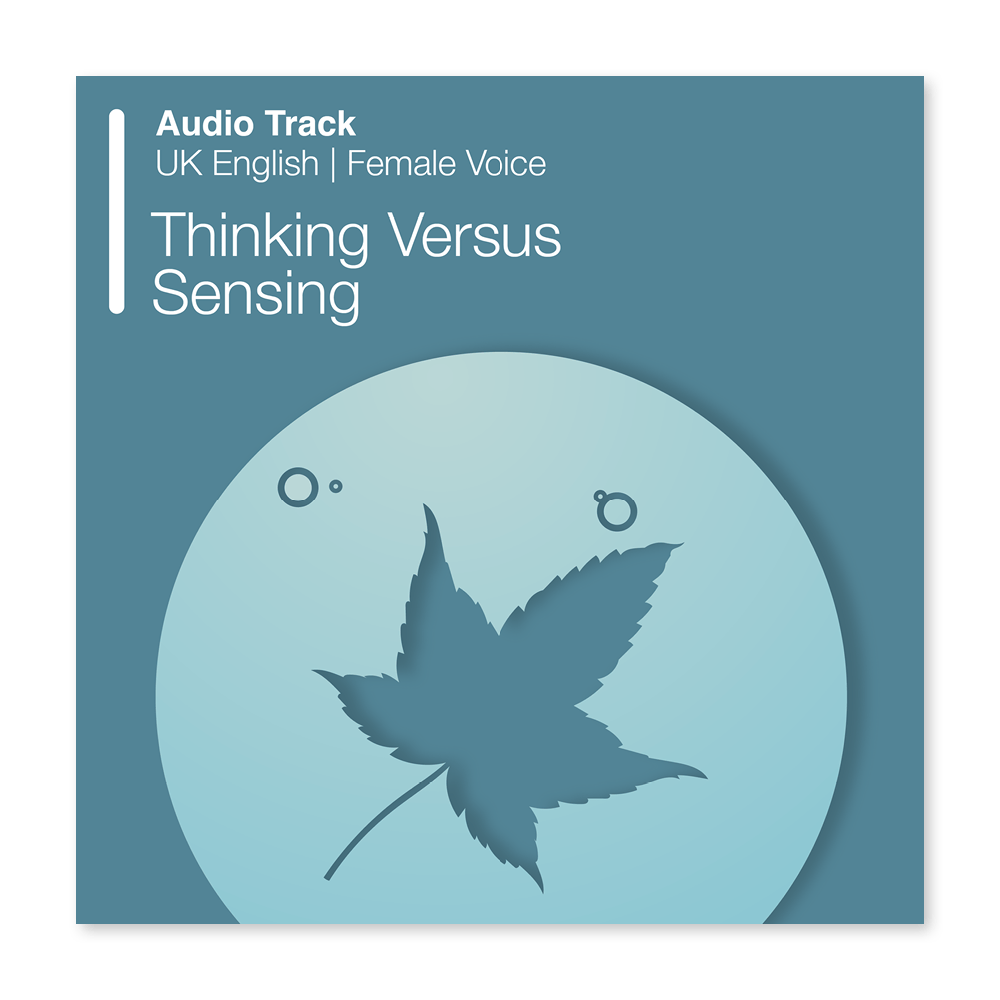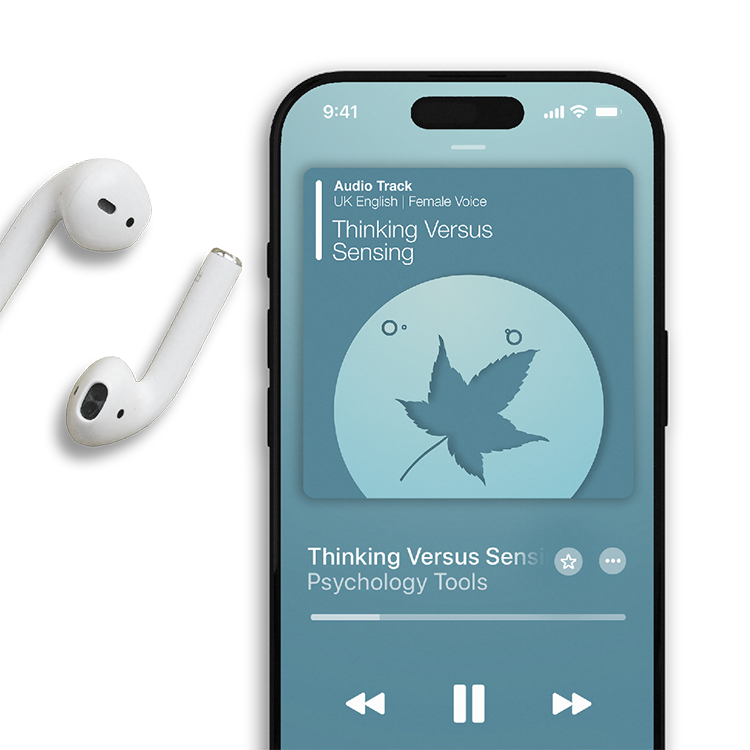Audio track (MP3)
A therapy audio track designed for skills development.
Audio script (PDF)
The script for a therapy audio track. Read along with an exercise, or record in your own voice.
This audio exercise distinguishes mental thoughts from sensory experience, assisting clients in recognizing how they process sensations versus thoughts. Taken from the Psychology Tools For Mindfulness audio collection.

A therapy audio track designed for skills development.
To use this feature you must be signed in to an active account on the Advanced or Complete plans.
The script for a therapy audio track. Read along with an exercise, or record in your own voice.
To use this feature you must be signed in to an active account on the Advanced or Complete plans.

Mindfulness is a skill to help people foster a connection with the present moment. The Psychology Tools For Mindfulness Audio Collection offers structured, guided exercises based on evidence-based mindfulness techniques that help users cultivate present moment awareness and acceptance.
Mindfulness practice is a core component of several evidence-based therapies, including mindfulness-based cognitive therapy (MBCT), mindfulness-based stress reduction (MBSR), dialectical behavior therapy (DBT), and acceptance and commitment therapy (ACT). Across these models, mindfulness is used to enhance present-moment awareness, reduce experiential avoidance, and foster a more accepting relationship with thoughts and emotions.
The Thinking Versus Sensing exercise is a mindfulness practice designed to help clients differentiate between cognitive and sensory processes. This exercise is particularly useful in cultivating mindfulness by encouraging practitioners to notice their thinking patterns versus their physical experiences without judgment.
Just enter your name and email address, and we'll send you Thinking Versus Sensing (Audio) (English GB) straight to your inbox. You'll also receive occasional product update emails wth evidence-based tools, clinical resources, and the latest psychological research.
Working...
This site uses strictly necessary cookies to function. We do not use cookies for analytics, marketing, or tracking purposes. By clicking “OK”, you agree to the use of these essential cookies. Read our Cookie Policy